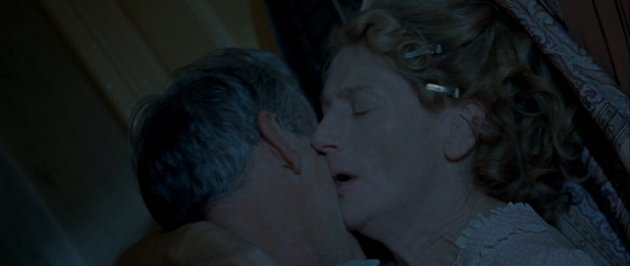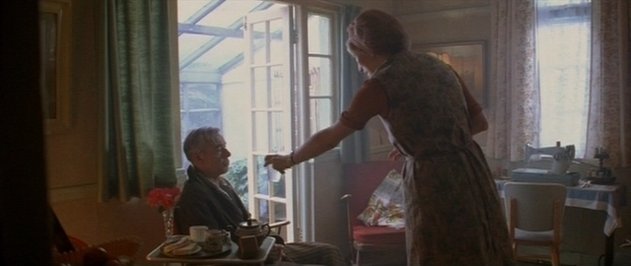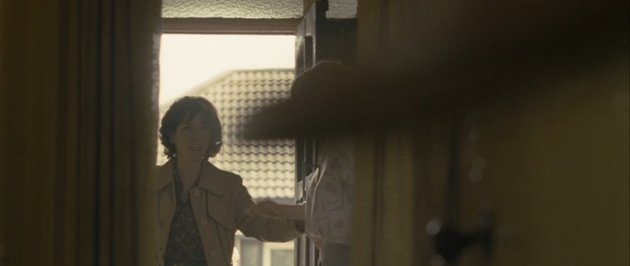[easyazon_image add_to_cart=”default” align=”left” asin=”B00J5LXQKQ” cloaking=”default” height=”160″ localization=”default” locale=”US” nofollow=”default” new_window=”default” src=”http://ecx.images-amazon.com/images/I/516EvF2NBnL._SL160_.jpg” tag=”disabilitymovies-20″ width=”128″][easyazon_link asin=”B00J5LXQKQ” locale=”US” new_window=”default” nofollow=”default” tag=”disabilitymovies-20″ add_to_cart=”default” cloaking=”default” localization=”default” popups=”default”]The Lunchbox[/easyazon_link] contains an unusual depiction of disability, in that the disabled character is never seen at all. The main character, Ila, gets advice and recipes from her upstairs neighbor Deshpande Auntie, who’s always available to talk because she provides round-the-clock care for her minimally-conscious husband. Ila is occasionally pressed into service to pick up things from the store, and the two pass each other items by way of a basket lowered on a string. How Auntie supports the two of them is not explained.
Auntie is convinced that Uncle’s fate is tied to the ceiling fan above his bed, based on an incident where his heart rate dropped just as the ceiling fan was turned off. Consequently, Auntie takes great care to ensure the continuous operation of the ceiling fan, going so far as to stand on the bed to clean it while it’s running. It is hard to say whether Auntie and Uncle’s relationship is supposed to function as an example of undying love and devotion, or monotony and force of habit.




